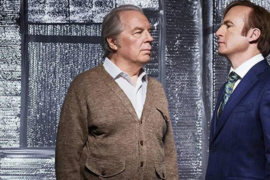‘TIS THE SEASON WHEN FAMILIES GET TOGETHER AND ARGUE ABOUT WHETHER LOVE, ACTUALLY IS ANY GOOD. I hereby unconditionally surrender. It must be doing something right. It’s clearly lovable, or people wouldn’t love it. What I would like to know is, why is my heart a lump of coal?
My plan is to take the movie apart to see how it works, to see how (or, frankly, if) it succeeds as a narrative—that is to say, as a story.
I think the polite way to describe the structure of Love, Actually is to say that it uses theme as a unifying device. It’s Parenthood with “love” instead of parenting. It’s worth noticing, though, that Parenthood relies not only on theme (parenting) but on the specific focus on the multiple branches and generations of a single family. Parenthood’s theme is well-served by its story’s time frame, which covers (or appears to, because there’s an 11th hour twist) more or less the nine months of pregnancy, as the characters struggle with (in every thread) whether or not to bring another child into their lives (even the Jason Robards “grandpa” thread does this, as Robards ends up adopting his deadbeat son’s unwanted kid).
The time frame of Love, Actually isn’t organic to anything at all. It’s just “the five weeks before Christmas.” Why? Because it’s the holidays and there’s a lot of love in baggage claim. Or something.
Tell someone who loves Love, Actually that Love, Actually isn’t actually about love, and you will be dismissed as a curmudgeonly asshole who doesn’t know what love is and/or prefers explosions. (Sort of in the way that an Oscar-bait movie about racism or feminism is impervious to criticism because to dislike it is tantamount to being a racist, sexist, etc.) But I would argue that a movie can’t be about love if nearly every thread (all but two) ends before the two “lovers” are acquainted with each other in any way beyond “will you go out with me?”/”yes” or “I like you”/”I like you too” or “I have always loved you inappropriately”/”I won’t tell” or “marry me”/”okay.” These threads end not with “happily ever after” but “and then he kissed me.” Is love really just about not being rejected when you tell someone you love them?
It’s as though each thread (but two) is not only a greeting card, but the same greeting card: “Take a chance on love; you won’t be disappointed.” In fact, most if not all of the threads of Love, Actually end where typical narratives begin. That is, they end with the set-up.
More on that later.
This movie gets a lot of mention in conversations about multiple protagonists. I don’t think it really fits in that category. When we talk about stories with multiple protagonists we mean (I think) one story, many ways in. The question we then grapple with is: whose points of view of this single story do we share? But Love, Actually doesn’t have multiple protagonists in this sense. The Prime Minister (etc.) doesn’t have any point of view regarding the other threads. He doesn’t even know about them. It’s not so much “multiple protagonist” in that sense, as “multiple narrative.”
When we talk about how to construct narratives, frequently what we mean is, how do you best tell this story? or how is this story best served? But you can’t tell Love, Actually as a story. There is no “this happened, and then this happened.” There is no A to Z. This seems like a minor point, but it’s not. There are plenty of ensemble movies with one story that can be told as a story. You can tell Little Miss Sunshine as a story. Or The Big Chill (a guy dies and all of his college buddies...). But you can’t tell the story of Love, Actually. Because there is no story. There are a bunch of separate stories. This would be so obvious as to not even be worth mentioning, except for the fact that even these separate stories don’t work as stories in any meaningful sense, given what has been left out.
Having seen the movie a few times now, its most noteworthy innovation in my opinion is writer/director Richard Curtis’s decision to skip past all of the messy and painful bits (a.k.a. drama) normally found in love stories, and cut directly to the big emotional set-pieces. Not to say that the trappings of drama aren’t present in these various threads, because each of the mini-stories has a nominal conflict. But the connective tissue that normally takes an audience from revelation to reversal to epiphany (or whatever) has been surgically removed.
The thing that I’m most curious about regarding Love, Actually is that it succeeds by—or despite—removing nearly every aspect of what we would normally call conflict. In each case, the conflict is established in one beat and resolved in the next, or at most one or two scene cards down the road. There is no struggle (except what is implied or off-screen) and there is no choice or sacrifice on the part of any of the protagonists. (With one exception, the Emma Thompson character, and strangely she isn’t even the central figure in her own thread.) In fact, in several instances, the characters do things that raise many questions and would impel entire juicy second acts were they allowed the space to do so in a feature length story. And, in four instances that come to mind, the movie treats as a “happy ending” what would otherwise be only the beginning.
The prime minister publicly hooks up with his secretary(sorry: culinary advocate). What’s the conflict? Well, it’s essentially Clinton/Lewinsky and we all know how that worked out. In real life, the world has something to say about the inappropriate hook-ups of world leaders. But in Love, Actually, no. The world—that is to say, the people at baggage claim—think it’s great. Cheer. Because love is all around. The cultural/class divide is simply brushed aside, like a greeting card dismissing potential bad consequences. Sure, Hugh Grant worries about the problems that might ensue, sort of. But these problems simply don’t materialize. The choice to be with her would make a great page 28 (followed by shit hitting fan—you know: like in a real movie). But here, it’s the climax.
A guy confesses to his best friend’s wife that he is in fact in love with her. What’s great about this set-up? A lot, really. It’s a huge, universally relatable problem. A guy in love with someone he can’t have. AND: if he acts on it, it will destroy his friendship with (and the marriage of) his best friend. It’s a no-win situation. So how does the movie work out this problem? He tells her about his feelings (which in and of itself is a betrayal of his friendship AND his role as best man), AND she kisses him, agreeing that his love for her will remain their little secret (thus undermining her marriage). So what are these two doing? They are cheating without cheating. Whether or not one agrees with this sentiment is, either way, kind of my point, because this is a problem that is raised by the “story” and then never addressed. It’s a set-up disguised as a curtain.
Imagine: And THEN the husband figures it out; and/or THEN the wife realizes she loves the best man; and/or THEN the best man is forced to face his true values (that his friendship is not as important as his own unfulfilled longing, etc.). These are arguments that the movie should have dramatized. If it were a drama. Which it isn’t. (What sacrifice does the best man have to make because of his conflicting feelings? None. The solution is to lie to his friend. And back to Hugh Grant: what sacrifice does Hugh have to make? Does he have to choose between work and love? No. Whew. That was easy!)
A woman isn’t allowed to experience romantic love because she has to care for her mentally-ill brother. This is the Laura Linney thread. Actually, that sentence is not only the log line for the thread, it’s the whole thread. She has a crush on a guy at the office. She goes out with him. They would have sex, but her brother calls. Because he always calls. Because he needs her and she is loyal to her brother. SO SHE CANNOT HAVE ROMANTIC LOVE. The end.
What?
A character wants something (the cute guy) but has a problem (her brother). How will she resolve it? She won’t. Because the point of the thread is that she is a martyr. She can’t have romance, because she’s a responsible grown-up with loyalty to family. The thread is not a narrative, it’s a demonstration of the specific nature of her martyrdom. This (not getting to be in love) has happened to her before, it will happen again. It’s her cross to bear. The end.
A writer has the hots for his housekeeper, but they don’t speak the same language.That is a problem. So far so good. Not only is it a problem with comedic or dramatic potential, but it’s an excellent metaphor for falling in love. So what’s the solution to this universal, metaphorically resonant problem?
He takes a Spanish class.
That’s it.
This is an excellent beginning. What happens next? Who knows. The movie doesn’t care. And any conflict these two characters ought to have is never depicted.
A woman discovers that the romantic gift her husband bought isn’t for her.You could also have made a whole (real) story out of this, the Emma Thompson/Alan Rickman thread. In fact, this is the one thread in the movie where a character is both confronted with an irreconcilable conflict and makes a choice that is both painful and a sacrifice. She thinks her husband is buying her a special gift, but it’s not for her. He is cheating on her or thinking of cheating on her or trying to cheat on her, or something. The point is, her marriage is not what she thought it was. The revelation is a kind of death. And we feel for her, and we are crushed for/with her. Like Laura Linney, she is a martyr (no love for you, because you are a responsible adult, or in this case, a good mother). But at least she does something. She makes a choice where there is no good choice.
That’s almost like a real movie.
But it’s undermined by the fact that she finds out in one scene, is upset in the next, tells him about it in the scene after that, and then, in the last scene (at the airport) Curtis ties up the story with a bow. Rickman returns from a business trip, and (apparently they haven’t seen each other since she told him off?) he looks at her with a pregnant look, and she says, “I’m fine.”
Thank goodness.
Nobody thinks she’s fine. It only works as Emma Thompson taking one for the team. It only works if we don’t believe her, except in the sense of “yes we all have been wronged and yet we carry on.” But since this hasn’t been explored (it’s barely been mentioned), it’s reduced to another kind of greeting card: in this case, a get-well card. I understand the impulse to resolve the thread by showing the choice she made, but so much has been left off-screen that the effect is trivial when it should be powerful.
I haven’t mentioned the aging rock guy and his fat manager, or Liam Neeson and his step-son who has a crush on a girl. The former is three or four beats of rock guy being a dick to his manager, and a final scene where he shows up and says “hey I realized I love you.” This is a realization he has had off-screen. The fat manager is supposed to be happy—and we’re supposed to be happy for him—that the guy who has been publicly humiliating him for (apparently) decades has realized he’s really his only friend. Really. I like to re-imagine this thread with a wife-beater and wife. “I realized I love you.”
I’m not sure this counts as heart-warming.
Liam Neeson and his step-son. There’s really nothing here. The kid has a crush. The way to get the girl to notice him is to learn to play the drums, which it turns out is pretty easy to do in the couple of weeks before the big show. And then she notices him. (Blah blah race through airport blah blah.) “Take a chance on love. You won’t be disappointed!”
There is something audaciously cynical about skipping all that messy story and just going to the money scenes. That one could do it in a romantic comedy is really the movie’s sole insight. I was going to call it an innovation, but it isn’t really. Because there’s another genre that not only has employed this tactic for decades, but it demonstrates it in literally every example of the genre.
Porn.
In porn (look it up), the “story” is merely a flimsy excuse to stage the big set-piece, in this case, sex. “I’m the plumber and I’ve come to fix the sink.” Wham. The reason he’s come to the house is not really important. The sink isn’t important. His backstory is so unimportant as to be entirely absent. Because all anybody wants to see is what happens when he arrives. The entire purpose of the “plot” of a porn movie is to supply the germ of an identifiable fantasy in the mind of the viewer, so that the viewer can then identify with the “protagonist” and become aroused by the circumstances. (Teacher kept me after class; wife is lonely while husband is on business trip; etc.)
This is exactly the strategy employed by Love, Actually. A guy is hot for his housekeeper, but they don’t speak the same language. The prime minister is hot for a member of his staff. Someone else is hot for her co-worker. Someone else is confused by the advances of his secretary; should he cheat on his wife (etc.)? Someone else is hot for his best friend’s bride. Our job as the audience is to identify with the situation (trope/cliché). Period. We don’t get dragged through the plumber’s problems getting a license. Or his self-esteem related to his more successful friends. We just see him come to “fix the sink.”
So, in that sense, Love, Actually is romantic comedy porn. This is not quite as insulting as it sounds. It’s a little insulting (mainly because it suggests what makes it appealing is something other than its “story”), but the point of the comparison is to note that it is in fact effective in its own way. Porn does what porn needs to do to achieve its porn effect. It’s not surprising that the porn audience has no problem skipping past the pesky story to get to the intercourse. I do find it surprising, and a little disturbing, that the Love, Actually audience doesn’t need the stuff Curtis left out.
JOHN MATTSON plays guitar better than he sings. He wrote “Free Willy 2: The Adventure Home” and “Free Willy 3: The Rescue”, two-thirds of one of the most successful live action family franchises in Warner Brothers’ history. (Siskel & Ebert called “Free Willy 3” “the best of the Free Willy pictures.”) His screenplay “Milk Money” sold to Paramount Pictures for a no-option outright purchase of $1.1 million, a record for romantic comedy specs. His short story “Figure and Ground” won the 2018 R. N. Kinder Prize for Realistic Fiction and was published in Pleiades Magazine. In 2019, he won the Los Angeles Review Literary Award for Flash Fiction for his story “Eric Clapton’s Girlfriend,” which will be published in LAR’s “best-of” annual in 2020. Madonna once set him up on a blind date. He teaches screenwriting at Chapman University.
Like what you’re reading?
Get new stories or poetry sent to your inbox. Drop your email below to start >>>
OR grab a print issue
Stories, poems and essays in a beautifully designed magazine you can hold in your hands.
GO TO ISSUESNEW book release
Ghost Engine by Christian TeBordo. Publisher’s Weekly says, “This serrated collection excels at knocking readers off-balance.” Order Ghost Engine by Christian TeBordo now.
GET THE BOOK



